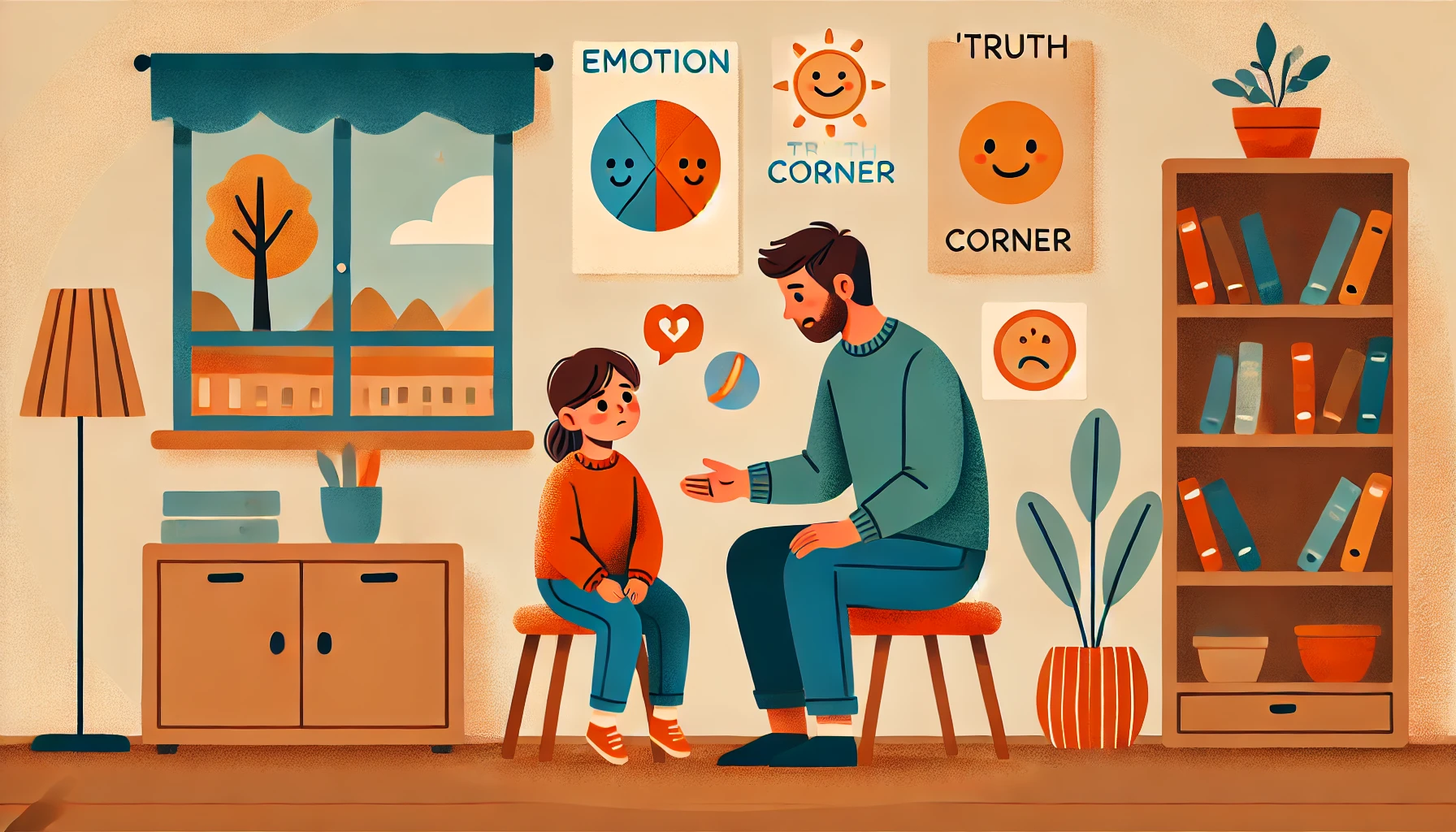Honesty is a fundamental value that helps children build trust, accountability, and strong relationships. While it’s natural for young children to experiment with truth and fiction—especially in imaginative play—learning when and why to be truthful is a skill that needs to be nurtured. With patience, examples, and open conversations, parents can help children see honesty as a sign of courage and integrity.
Why Teaching Honesty Matters
- Builds trust and security in relationships
- Encourages responsibility for actions
- Fosters emotional awareness and self-reflection
- Helps kids feel safe and accepted even when they make mistakes
- Lays a foundation for moral decision-making in later life
1. Explain What Honesty Means
Use simple, clear language that connects to real-life situations.
Activity Idea:
- Say: “Being honest means telling the truth, even when it’s hard.”
- Give examples like admitting when a toy is broken or when a rule was forgotten.
- Ask: “Why do you think telling the truth is important?”
What Kids Learn:
- That honesty is about trust.
- That truth-telling is a brave choice.
- That it helps others know what really happened.
2. Use Stories to Illustrate Truth and Lies
Books and stories help children understand the impact of dishonesty.
Activity Idea:
- Read stories like The Boy Who Cried Wolf or Lying Up a Storm.
- Ask questions: “What happened because the character didn’t tell the truth?”
- Help them imagine a different ending: “What if they had been honest instead?”
What Kids Learn:
- That lying can lead to problems.
- How honesty creates better outcomes.
- That characters make mistakes too—and learn from them.
3. Celebrate Truth-Telling, Especially When It’s Hard
Reinforce that being honest is a positive, not a punishment.
Activity Idea:
- When your child admits a mistake, say: “Thank you for telling the truth—that was very brave.”
- Highlight the act of honesty over the mistake itself.
- Use positive reinforcement like stickers, stars, or verbal praise.
What Kids Learn:
- That honesty is safe and appreciated.
- That their truth is more important than perfection.
- That they’ll be loved even when they mess up.
4. Create a Safe Space for Mistakes
Children are more likely to lie if they’re afraid of being punished or shamed.
Activity Idea:
- Respond with calm questions: “What happened?” instead of “Why did you do that?”
- Avoid harsh reactions—focus on understanding and problem-solving.
- Encourage second chances: “Let’s fix it together.”
What Kids Learn:
- That mistakes are okay.
- That telling the truth leads to solutions.
- That they’re supported through the learning process.
5. Model Honesty in Your Own Behavior
Kids learn integrity by watching their caregivers.
Activity Idea:
- Share age-appropriate examples: “I forgot to return the book on time, so I told the librarian and said sorry.”
- Avoid “white lies” in front of your child.
- Admit when you’re wrong: “I made a mistake. I’m going to make it right.”
What Kids Learn:
- That even grown-ups are honest.
- How to own up with grace.
- That honesty is a lifelong value.
6. Practice with Pretend Play and Role-Playing
Help kids distinguish between playful pretending and lying to avoid consequences.
Activity Idea:
- Use dolls or puppets to role-play scenarios: one lies, one tells the truth.
- Discuss how each character feels afterward.
- Create playful games where kids choose the “truth path” in a pretend adventure.
What Kids Learn:
- That honesty affects feelings and trust.
- How to choose truth even in tempting situations.
- The difference between fun pretending and dishonesty.
7. Talk About How Honesty Feels
Link honesty to positive emotions and internal values.
Activity Idea:
- After a truthful moment, ask: “How do you feel now that you told the truth?”
- Create a feelings chart to connect honesty with pride, relief, or confidence.
- Reinforce emotional awareness through bedtime chats or journaling.
What Kids Learn:
- That truth-telling often leads to peace.
- How to reflect on their emotional state.
- That inner honesty feels good and empowering.
8. Be Consistent with Expectations
Consistency helps honesty become a habit.
Activity Idea:
- Talk about honesty as part of your family values: “In our family, we tell the truth.”
- Remind your child gently when a fib happens: “Let’s try again with the truth.”
- Reinforce the long-term benefits of honesty, even when no one is watching.
What Kids Learn:
- That honesty is a standard, not just a rule.
- How to build integrity over time.
- That their character matters more than the moment.
Final Thoughts
Teaching young children about honesty helps shape their understanding of integrity, accountability, and emotional safety. By modeling truthfulness, encouraging openness, and celebrating honest moments, parents create an environment where children feel confident to be themselves—even when mistakes happen. The earlier honesty becomes a habit, the stronger it will grow.
